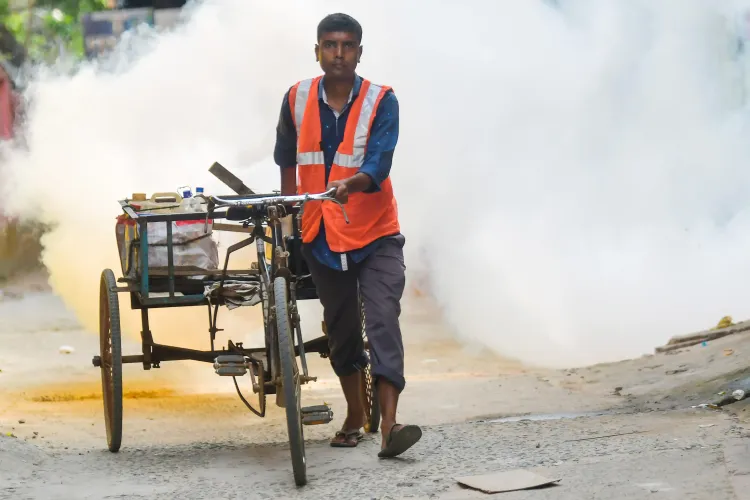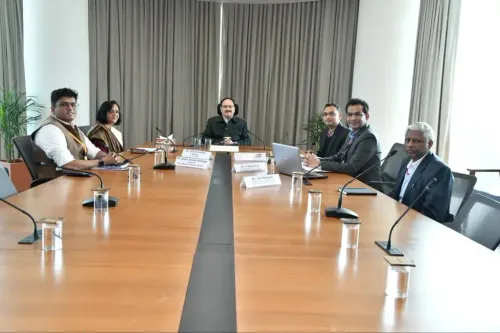What Preventive Measures Is the Government Urging Against Dengue and Malaria?

Synopsis
Key Takeaways
- Government issues advisory to enhance preventive measures against dengue and malaria.
- Community awareness and vigilance are crucial during the high-risk season.
- Health ministers are urged to review and act within 20 days.
- Rising cases necessitate immediate action from local bodies.
- India aims for malaria elimination by 2030.
New Delhi, Sep 11 (NationPress) Following an assessment of the present status of dengue and malaria across the nation, the government has put forth an advisory urging states to enhance preventive measures against these mosquito-transmitted diseases, as stated by the Ministry of Health and Family Welfare on Thursday.
The review meeting, led by Union Health Minister Jagat Prakash Nadda on Wednesday, addressed the current conditions and the main challenges in managing and controlling dengue and malaria.
“States, local bodies, and communities are called to escalate their preventive and control efforts, especially during this critical period, to protect public health and maintain the progress made in lessening the impact of vector-borne diseases,” emphasized Nadda.
In the advisory, Nadda called upon all Chief Ministers “to stay alert in the upcoming months and to amplify preventive strategies along with community awareness initiatives for effective management of dengue and malaria.”
This meeting was held amidst rising reports of dengue and malaria cases from various regions, including Maharashtra and Delhi-NCR, triggered by persistent rainfall that caused water accumulation, thereby creating breeding grounds.
Consequently, the government has directed states and local authorities to heighten their preventive measures.
Nadda also recommended state health ministers to personally assess the situation and formulate action plans within a 20-day timeframe, while Municipal Corporations, Panchayats, and local bodies were encouraged to boost community awareness campaigns.
“Hospitals, including those operated by the Central Government, must guarantee the availability of necessary medications, diagnostics, hospital beds, and mosquito-free environments,” stated the Health Minister.
As per the latest weekly report from the Municipal Corporation of Delhi, 499 cases of dengue have been documented so far in 2025, alongside 235 malaria cases and 37 cases of chikungunya. This marks an increase from the 481 dengue, 210 malaria, and 29 chikungunya cases recorded during the corresponding period in 2024.
Data from the Brihanmumbai Municipal Corporation (BMC) indicated 1,555 malaria cases, 1,159 dengue cases, and 220 chikungunya cases in August. In July, there were 1,294 malaria cases, 708 dengue cases, and 129 chikungunya cases.
To combat the malaria burden, the government has initiated various programs, including the National Strategic Plan for Malaria Elimination (2023-27), the implementation of the Integrated Health Management Platform (IHIP) for real-time oversight, increased incentives for ASHA workers, widespread distribution of Long-Lasting Insecticidal Nets (LLINs), refresher training for laboratory technicians, and the recognition of districts achieving “Zero Malaria” status. India aims to eliminate malaria by 2030.
For dengue, the National Dengue Control Strategy is being enacted through State Vector-Borne Disease Cells, emphasizing surveillance, case management, vector control, inter-sectoral collaboration, and community engagement.










